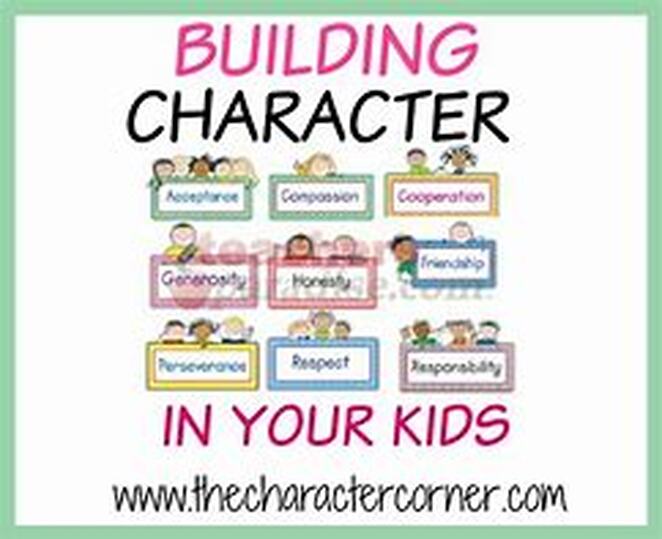 Now here’s a concept we can sink our teeth into. Quality family time is (or should be) a goal of your family interaction. These are memory-makers, “Kodak moments,” a sigh for parents who feel like they are getting affirmation, who feel like they’ve finally gotten something right. But what makes quality family time? There are three categories of quality family time. In healthy functioning families, all three categories exist. There are glimpses, moments, and planned time together. Angie labored over the kitchen sink, making the fixin’s for a salad for dinner. She glanced into the family room and saw 5-year-old Allison reading to her 3-yr-old brother. She would read the page and then show him the pictures, pointing out how the words captured the pictures. Angie sighed and grinned as she continued making supper. She just witnessed a glimpse of quality family time. Hank was playing catch with his son, Henry, in the back yard, after coming home from Henry’s Little League baseball game. Mandy was on the swing as their mom walked out to be with them. “Push me, Mommy,” Mandy pleaded. “All right, all right. I’m coming. Don’t get all in a tizzy.” Mandy giggled and asked, “Mommy, what’s a tizzy?” as her mom started pushing her. Across the yard, Hank pretended that Henry was throwing the ball too fast and it was hurting his hand. Henry sighed, smiled, and commended, “Yeah, riiight.” Here, everybody’s together. They’re having fun. It just happened, a moment of quality family time. After their usual, Sunday afternoon, scheduled family planning meeting, the Wilsons finalized their upcoming family vacation. Everyone was heard and each got something they had lobbied for that was within their time and financial constraints. On Saturday morning, they had all pitched in with the weekly housecleaning. Working together, dividing up responsibilities according to age and ability, they got the whole house straightened in only two hours. Dad was actually right with his tired, old “more hands, less work” trope. These two snapshots are examples of the category of quality family time that is planned time together. Keep in mind several obstacles to quality family time. While each of your family members need their private space, holing up in their bedroom for long periods of time is an obstacle. As the parent, you might negotiate a block of time where they can be alone. Quality family time is where your children learn social interaction skills, emotional intimacy, sharing, and bonding, all of which will serve them well as adults. Also, in our pervasive electronics, computers, and cyberspace, kids will gravitate to these activities if allowed. Establish family rules. For example, no more than 2 hours of electronic gaming and TV time per day, and that is only after chores and homework are completed. No electronics (such as Ipads and phones) during family meals. Oh, and eat dinner around the table together. My kids still tease me about promoting “pleasant conversation” during meals. Research shows that, back in the day, families gathered for 15 meals per week, out of a possible 21 meals. Nowadays, families gather on average for only 3 meals per week. Being too busy is not an excuse. Make the time. Eating together is a great time to nurture quality family time. Achieving the goal of creating quality family time together will serve your family well. Blessings, Jon
0 Comments
 Get in Sync with Your Child: The Four Stages of Parenting Parenting is the toughest, most consequential job for which most of us never have any training. By practice and experience, as adults, we all tend to parent just like our parents, or just opposite our parents. That’s just shy of the ole trial and error method. In my first book, Teachable Moments: Building Blocks of Christian Parenting, I provide such a source book for effective parenting. In this book, I go into greater length about active listening, when things are not going so well, and I elaborate on the four stages of parenting, when things are going well in your family. Okay, enough of plugging the product (Oh, you can find my book on amazonbooks.com, Okay, that’s all). Mikey, age 7, came in from the back yard, slamming the screen door to the kitchen. He growled and stomped toward his bedroom. “I hate Devon,” he screamed as he fell across his bed. “Uh oh, here we go again,” Amber thought, as she dried her hands on a kitchen towel. “What’s happened now?” She hurried to her son’s room. Here is a choice point for Amber. She could be frustrated with Mikey’s behavior and fire back something like, “Now, you just hold on, young man. You don’t go slamming things in this house.” Accurate, but helpful? She could have said, “You and Devon have been such good friends. Don’t you think you should go apologize to him for being mean?” Again, a potentially positive outcome, but timely at this point? Amber chose to go into Mikey’s room, gently sit on his bed next to his curled position facing away from her, and softly rub his back. She waited, saying nothing for several minutes while Mikey cried and then settled. “I’m so sorry, baby.” She soothed. “Things got out of hand, huh? And you got very upset.” Amber used her active listening to help her son sort out his feelings himself. She used a variety of feeling words with him and emphasized those with which he agreed. After he settled down, she asked, “So, what do you think you could do now?” If he is stumped, she gets his permission to share her thoughts on his upset. Active listening is a parental superpower! All parents know how to help their child when they have a physical fever. Aspirin, cold compress, chicken soup, bedrest. Active listening is your go-to response when your child has an emotional fever. Also, most children are both stunned and impressed when, after they’ve settled, you ask permission to talk, saying something like “So, I have some thoughts about what we’ve been talking about. Wanna hear them?” When all is well in the family, no fevers, physical or emotional, and everybody is trucking along, be aware of the parenting stage each of your children are in. There are four parenting stages. You will best connect and your words will have the most impact if they match the appropriate age of your child. From birth to about age 5, parents want to use hands-on parenting. You can’t leave an infant to feed herself. You show a toddler how to put stuffed animals in his toy chest. You keep your hand on her bike seat, as she learns to balance and ride her bike. From age 6 to 10, parents want to use directed parenting. You help her think through how she wants a playdate to go. You are in the room to answer questions and guide him as he does his homework. You show him how to weed the garden, prune the plants, and pick the veggies for the supper table. From ages 11-17, parents want to use advice-based parenting. Tweenagers, ages 10-12, think they know everything but don’t. Give cautionary tales, fill in their knowledge gaps, tolerate the eye-rolls. Young teens, ages 13-17, know they know everything and you know nothing. Tolerate their collective attitude, give them room to fail but pick them up and help them re-calculate. From age 18 to forever, parents want to use consultative parenting. You have knowledge and experience being an adult. You can be their role model, mentor, confidante. When you see them struggling, ask if you can help. Wait for permission and then give them what you know. Back off and let them do what they want/can with their new knowledge. This progression of parenting stages helps you know where you and your children are in their development. Crossing stages can be at least confusing and possibly overwhelming to your child. Pace. Ask for feedback. Help them learn how to grow. Successful parenting is achieved when your child enters adulthood as an independent, responsible, socially conscious individual.  Most families have at least one character. You know, the one who occasionally does weird, funny stuff, just to get a laugh or attention. Think of the TV show, America’s Funniest Videos. The character in your home sets up pranks, makes funny faces, and enjoys the cohesiveness of family laughing together, even if they are laughing at/with him. Eight-year-old Petey was the family jokester. Always finding stuff to get into or a prank to pull. He was a character for sure. Sometimes he would walk into the family room where others were watching TV. He’d move kind of slow, shuffling dramatically, with his stomach pooched out. He would get everybody’s attention and announce, “Look at me, I’m Big Pete.” When all were together, he and his dad would be referred to as Big Pete and Little Pete. The darker side of being the family character has an unconscious purpose. In these cases, attention is drawn away from others in the family and to the character. It’s usually negative attention and its purpose is to get the family to focus away from anxious or problem-inducing behavior of others. The character’s effort is to save others in the family from dealing with important stuff. Annie, at age 13, sulked about the house, rarely making eye contact with others, and seeming always to be in a bad mood. When approached, she was quick to say, “Go away,” or, “Leave me alone.” She stayed in her room a lot. Both parents were worried about her and didn’t know what to do. It was in family therapy that they realized that Annie had been distancing herself in fear of her dad leaving her mom and her mom drinking to drown her marital sorrows. When her folks began dealing with their problems, Annie became more involved in the family. Her folks had assured her that divorce was not on the table. Annie didn’t feel the need to be the darker attention-seeking character any more. Being the character in your family and the parenting goal of building character with your kids are two very different things. With attention to problems and issues as they come up, parents want to also help their kids build character, that is, be a good person. Effective parenting involves launching your children into adulthood as independent, responsible, socially engaged adults. So, how do you do that? First, help them learn independence and social engagement by giving them chores. Such mundane, age-appropriate activities as emptying the dishwasher, doing their own laundry, keeping their rooms clean have the added benefit of teaching them responsibility and helping them see their activities as a part of the family dynamic. To get started and to check in as to how things are going, develop the routine of having weekly family meetings. Sunday afternoon is a good, check-in time when it is likely that everyone is available. Another tool for character-building is using a large, dry-erase, monthly calendar. Hang it in the common area, kitchen or family room, with the marker close at hand. Being in your family means you are responsible for keeping your activities up to date on the calendar. This activity teaches your kids both responsibility, accountability, and also give them credit for compliance Giving your children a monetary allowance and contracting for specific, involved jobs outside of their chores helps them build character. They learn negotiating skills, money management, as well as independence. They learn how to save for stuff they want and, if it fits with your values, how to tithe, contributing to the greater good of those less fortunate. Finally, make time for family fun activities as well as for one-on-one activities with each of your kids. When you are involved this way, you are teaching how to be kind, emotionally intimate, and loving. Character-building is a fundamental precept of effective parenting. If I’ve reinforced what you are already doing, great! If you are working on it, implement these ideas into your daily family life. |
Archives
January 2024
Categories
All
|

 RSS Feed
RSS Feed
